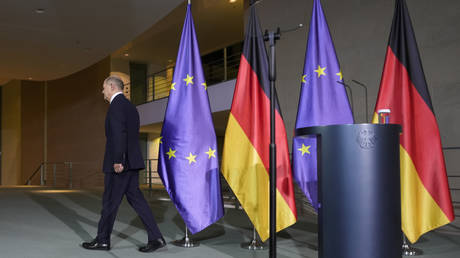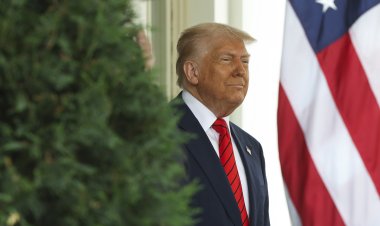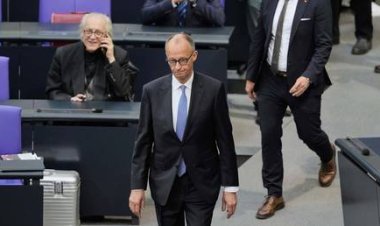German Government Falls Apart
The 'traffic-light' coalition in Germany has disbanded, resulting in Olaf Scholz leading a minority government formed by the SPD and the Greens.. source:TROIB RTS

The ‘traffic-light’ coalition has disintegrated, leaving Olaf Scholz in charge of a minority government composed solely of his Social Democratic Party and the Greens. This development follows Scholz’s dismissal of Free Democratic Party (FDP) leader Christian Lindner from his role as finance minister.
In the wake of Lindner's termination, which resulted from unsuccessful crisis talks on Wednesday evening, FDP parliamentary group leader Christian Durr announced that the party would withdraw its ministers from Scholz’s government, effectively ending the three-party coalition.
The Greens expressed their disappointment over the situation, but indicated that they wished to remain part of a minority government, highlighting the necessity for the EU—and Germany specifically—to demonstrate its ability to take action, particularly in light of Donald Trump’s election as US president.
“I want to say for us that this feels wrong and not right tonight – almost tragic on a day like this, when Germany must show unity and the ability to act in Europe,” stated Vice Chancellor and Economy Minister Robert Habeck during a joint press release with Foreign Minister Annalena Baerbock on Wednesday night.
“This is not a good day for Germany and also not a good day for Europe,” Baerbock added.
Lindner was dismissed after he reportedly suggested early elections following another round of unsuccessful negotiations among the leaders of the three coalition parties regarding the multibillion-euro deficit in the upcoming year’s budget.
“All too often, Minister Lindner has blocked laws in an inappropriate manner,” Scholz remarked, accusing Lindner of obstructing any easing of spending rules that would enable increased aid to Ukraine.
Conversely, Lindner charged that the chancellor has failed to acknowledge the genuine “economic concerns” of the German populace. “Olaf Scholz has long failed to recognize the need for a new economic awakening in our country,” he stated.
Scholz expressed his intention to reach out to opposition leader Friedrich Merz of the Christian Democrats, offering him the “opportunity” to collaborate with his government, noting that in light of the US election, this need is “perhaps more urgent than ever.”
In the meantime, the right-wing Alternative for Germany (AfD) opposition party welcomed the collapse of the coalition, labeling it a long-overdue “liberation” for the country.
“After months of gridlock and countless self-centered therapy sessions, we now urgently need a fundamental political fresh start to lead the economy and the country as a whole out of the severe crisis into which it has been plunged by the ideology-driven policies of the SPD, Greens, and FDP,” AfD parliamentary leaders Alice Weidel and Tino Chrupalla stated in a communication on X.
Scholz has announced that the Bundestag will conduct a vote of confidence on January 15. As per the constitution, if the chancellor does not achieve the necessary backing, he may formally ask the president to dissolve the 733-seat lower house and call for a new election within 60 days. This could result in German parliamentary elections being pushed from next autumn to March 2025.
Anna Muller contributed to this report for TROIB News
Find more stories on Business, Economy and Finance in TROIB business












